Apostrophes are used to indicate whether a word is possessive (the subject belongs to someone) or to indicate a contraction (shortened speech).
Possessive Apostrophes
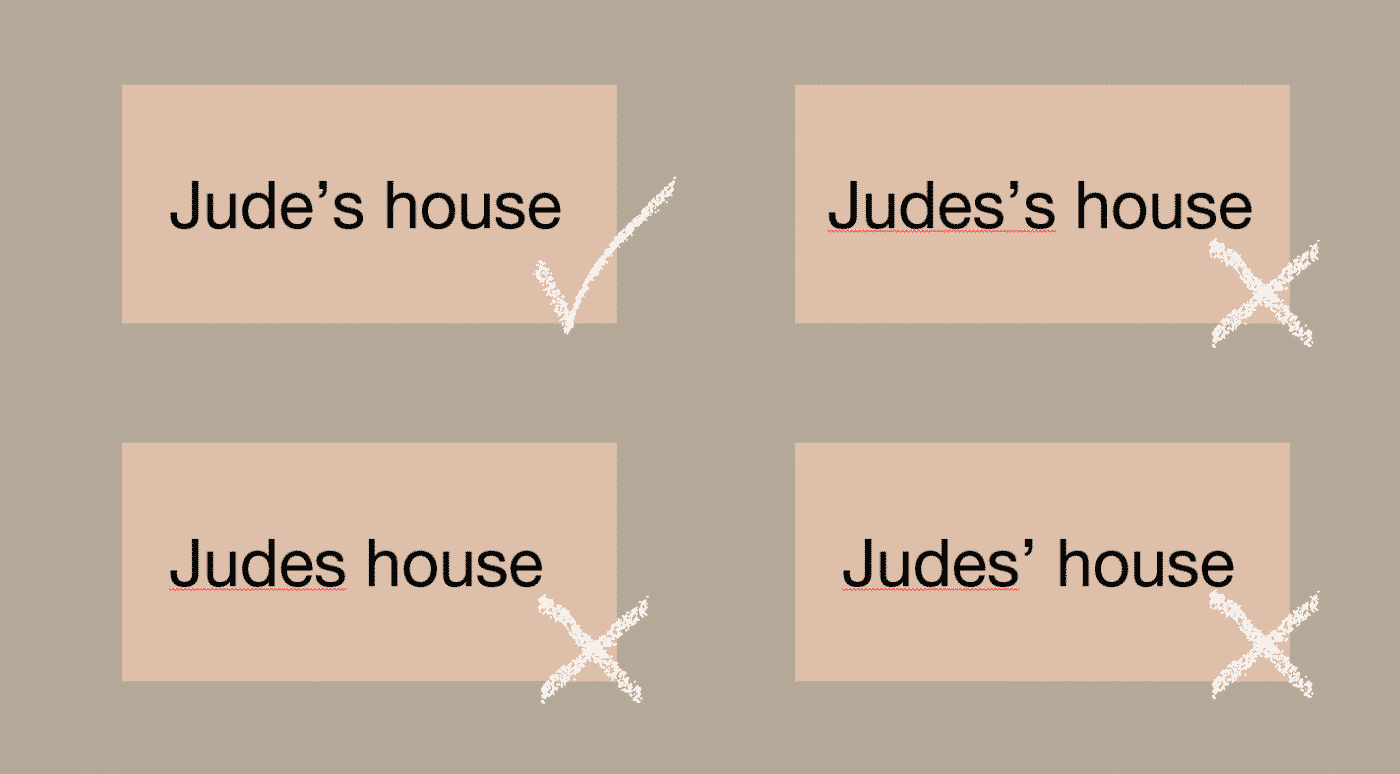
Singular
In order to demonstrate that the subject is owned or belongs to a single person, we add an apostrophe before the s in the word. For example:
‘Samantha borrowed Frankie’s football.’
As you can see in the above sentence, the football belongs only to Frankie. Therefore, we would indicate this by putting an apostrophe before the s.
Plural
When a subject is owned or belongs to a number of people, use an apostrophe after the s in the word. For example:
‘Samantha borrowed the boys’ football.’
In the above example, you can see that the ball belonged to more than one boy, as indicated by the apostrophe after the s. If the apostrophe came before the s: boy’s, then the ball would belong to a single boy.
Double S
One of the most confusing things that often occurs with apostrophes, is what to use if the singular subject/owner has an s at the end of their name. For example: Rapleys (a company). In these cases, add an extra s, to indicate possession.
‘I organised Rapleys’s end of season party.’
Obviously, you wouldn’t need to do this if the subject is plural, since then it will already have an S. It might look strange, but it is grammatically correct.
Contractions
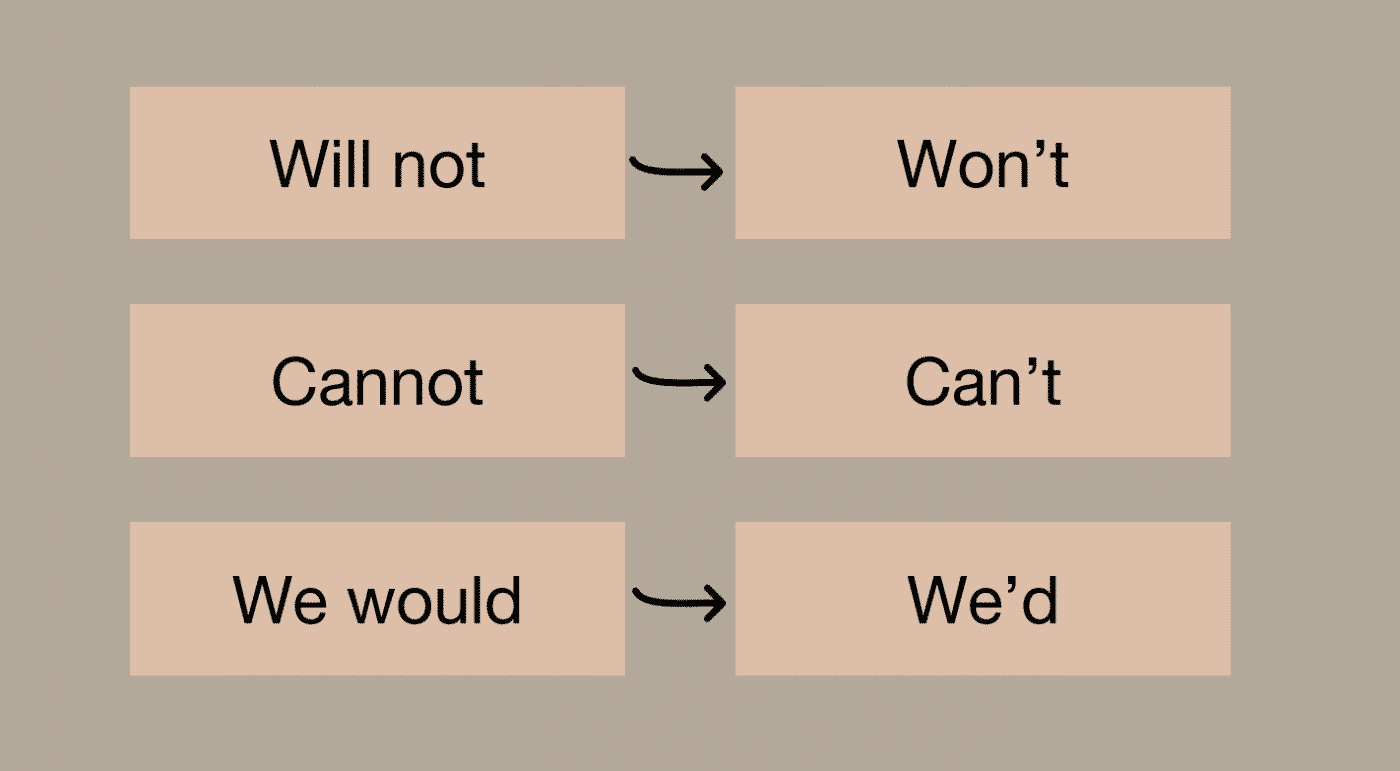
Apostrophes do not always indicate possession. They can also be used to shorten/contract common phrases. For example, to shorten the term ‘it is’, write ‘it’s’. Here, the apostrophe indicates that a letter has been removed.
Below are a list of common phrases and their contracted forms:
- It is: It’s
- I have: I’ve
- You are: You’re
- Cannot: Can’t
- We are: We’re
- Does not: Doesn’t
- They are: They’re
- Would not: Wouldn’t
- I will: I’ll
When to use contractions
There is a time and place for contractions. While there is no set rule, generally you would use contractions more in informal writing, and use the non-contracted versions of phrases in formal text. For example:
If you were writing dialogue in a book, you would generally use contracted speech.
‘I’m going to the shops later. Would you like anything?’
In this situation, you are aiming to mirror real life – and in real life speech people use contractions more often than not.
In contrast, if you were writing a formal essay, you would generally avoid contractions, as you want to make yourself sound as professional as possible:
‘Now, I am going to discuss the reasons why we should be conscious of our carbon footprint.’
Apostrophes and Time
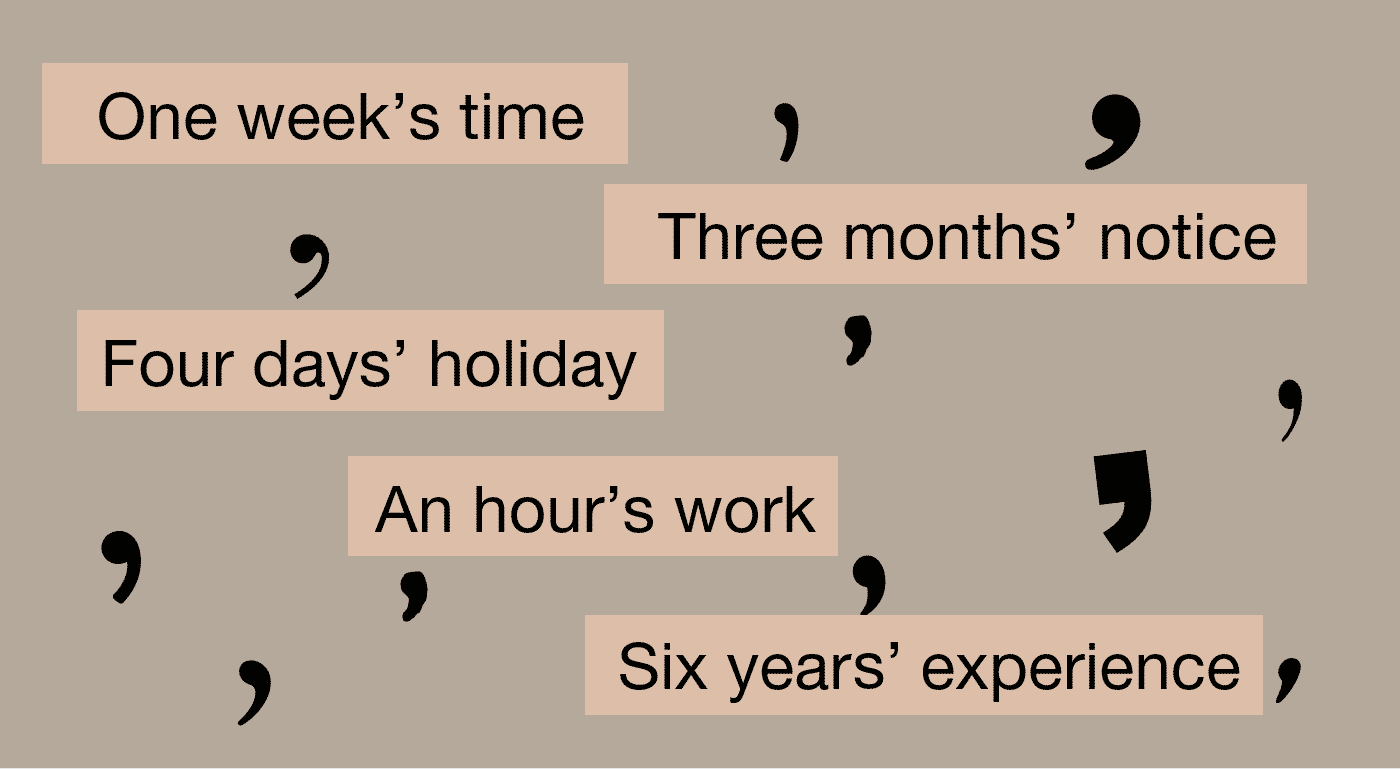
One of many quirks of the English language, both time and money are given power of possessive. That is to say, you will still need to use an apostrophe, on occasion, when giving dates or figures. Below is a common example of this:
‘I will see you in two weeks’ time.’
You can see that the apostrophe has been added after s in the word ‘weeks’. The reason for this is that the ‘time’ becomes the subject, which belongs to the two weeks, meaning you must indicate possession. Since there are two weeks, it’s plural, and therefore the apostrophe comes after the s. If you were describing a singular week, then the apostrophe would come before the s:
‘I will see you in one week’s time.’
The same applies for years, and months too. For monetary values, you would use the same rule, but this is seen less frequently:
‘Two pounds’ worth of change’
‘One pound’s worth of change.’
When NOT to Use an Apostrophe
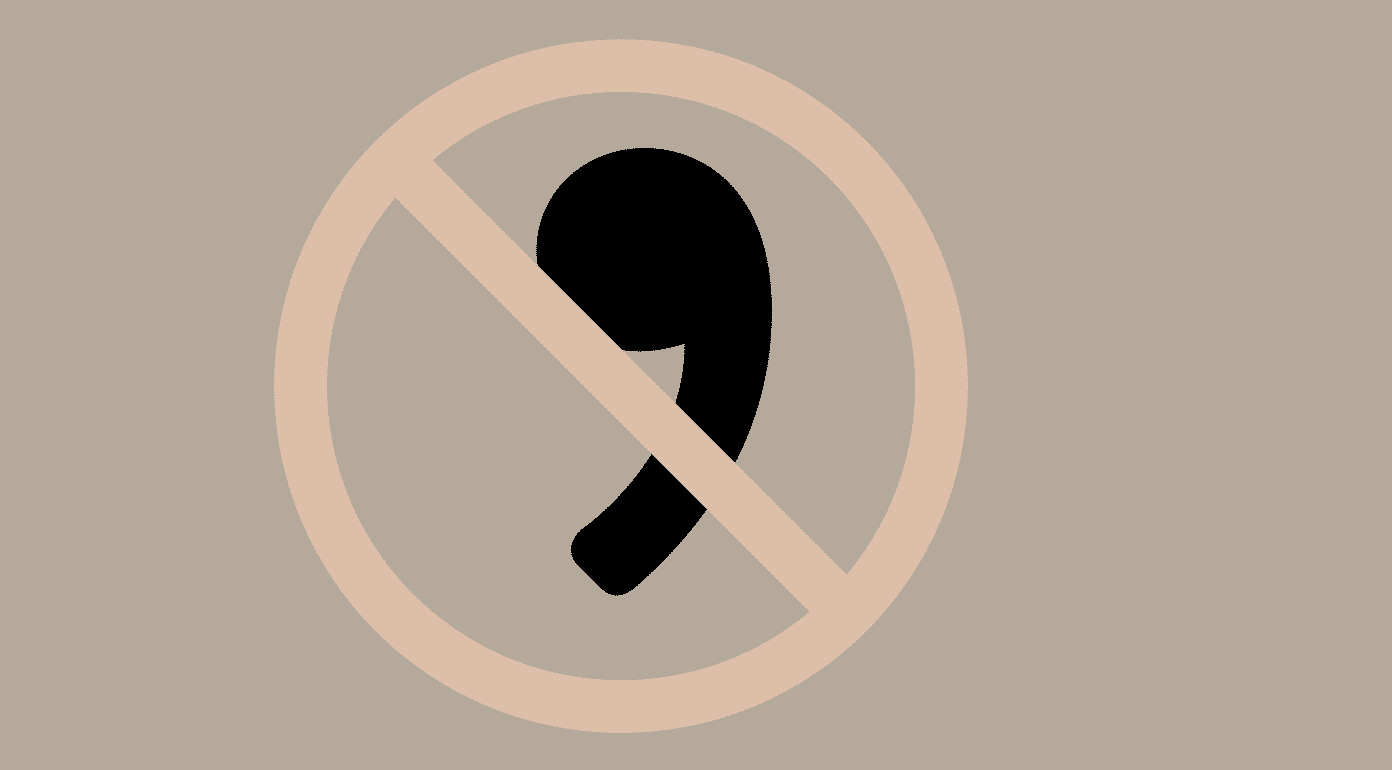
Apostrophes are most commonly misused when people try to create a plural form of words, without needing to do so. For example:
‘The clock’s were wrong, Paul made a note to himself to fix them later.’
This is incorrect, because grammatically this sentence indicates that the clocks have ownership/possession, which is not the case. The only way to make this work would be to say:
‘The clock’s hands were wrong, Paul made a note to himself to fix them later.’
You can see here that by adding ‘hands’, which belongs to the (singular) clock, we can add an apostrophe.
Years
Another common mistake is to add an apostrophe when referring to years – 1960s. On its own, there is no apostrophe here, because there is no possession:
‘I was born in the 1960s.’
‘He was not a fan of 1960s fashion.’
Even in the second example, we would not add an apostrophe before or after the ‘s’ in 1960s. You would, however, use an apostrophe if you decided to contract the spelling. For example:
‘The man was born in the ‘60s.’
Here, you are contracting the ‘19’ and therefore this needs something to indicate that. The same applies with other slang terms. For example:
Jared lost his keys two days ago. When checking his coat pocket he was pleased to find them. Delighted, he yelled, ‘Got ‘em!’
The apostrophe here is used as a slang contraction of ‘them’. Most of the time, however, it’s safer to save yourself the bother and just write the full word. This is especially the case with formal writing.
Exceptions
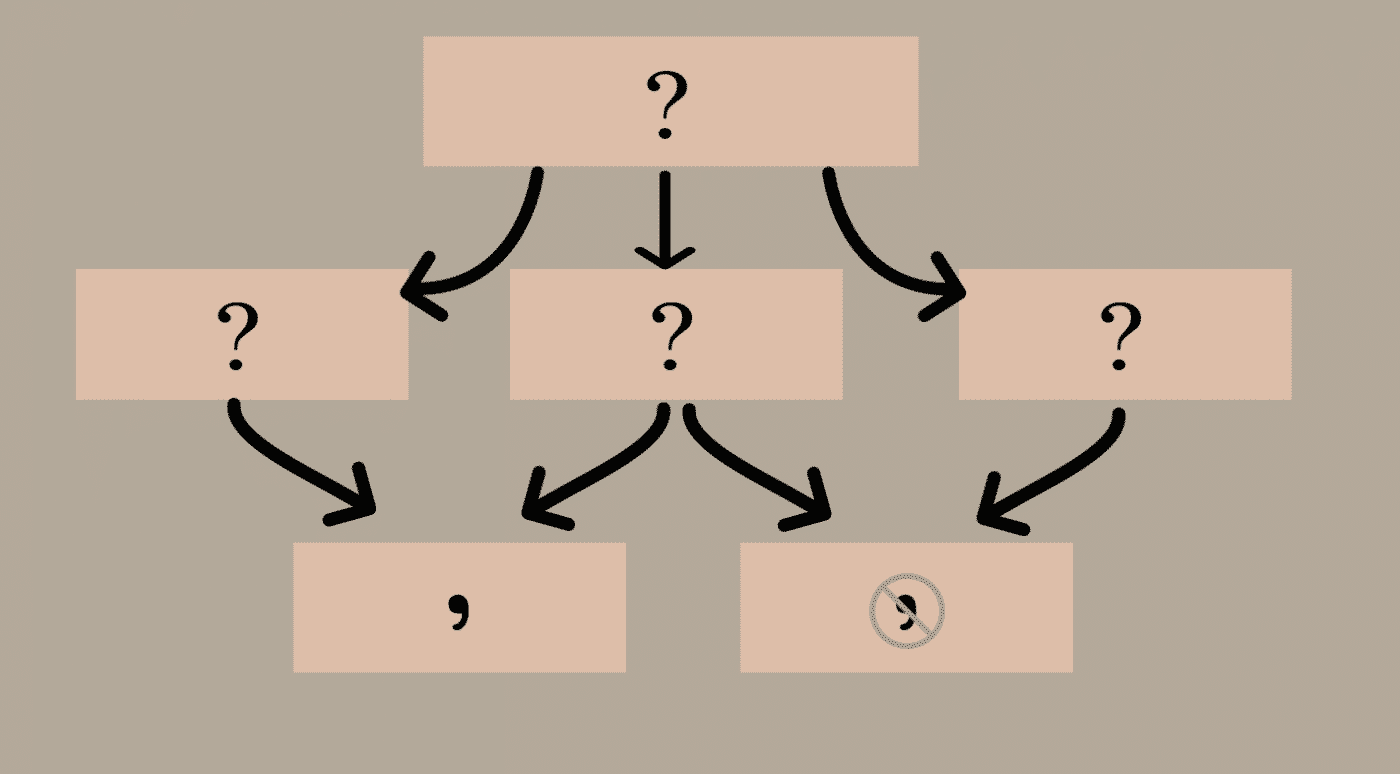
Occasionally, there are exceptions to the rule above, where aesthetically speaking it makes more sense to add an apostrophe, even though it might not be grammatically correct. You will often see shops or brand names taking this approach. A good example of this is below:
‘I rebuked Samuel, and asked him to mind his p’s and q’s.’
You can see here that we’ve added apostrophes, to make what we are saying clearer. If we wrote the sentence without apostrophes, here is how it would look:
‘I rebuked Samuel, and asked him to mind his ps and qs.’
The term ‘ps’ and ‘qs’ here is quite confusing, and that’s why we add an apostrophe, to split the terms up. This is a rarity though, and you generally won’t be able to do this (or need to do it) with most words/phrases.
Possessive Pronouns
There’s no need to add apostrophes to possessive pronouns, such as:
- Yours
- Hers
- His
- Its
- Theirs
- Ours
All of these already indicate possession, so apostrophising them would be incorrect.
Download all this information
+ 15 practice queStions to test your understanding of apostrophes!
- Possessive apostrophes (single and plural);
- Contractions;
- Apostrophes and Time;
- When NOT To Use Apostrophes;
- Exceptions to the apostrophe rules;
- 15 practice questions to test your understanding of when and how to use apostrophes;
- Answers and explanations for all questions.
SPECIAL OFFER: £5.00 | TODAY’S PRICE ONLY: £1.50
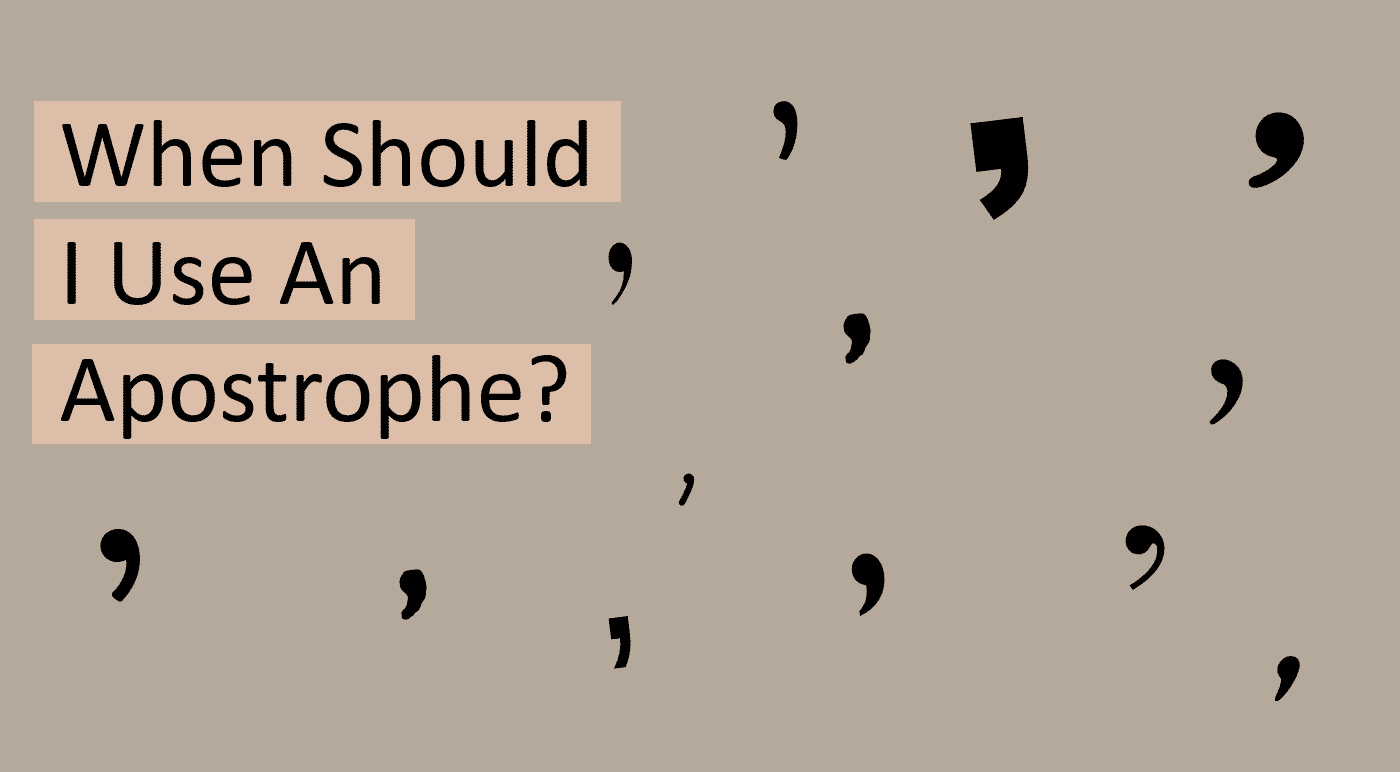
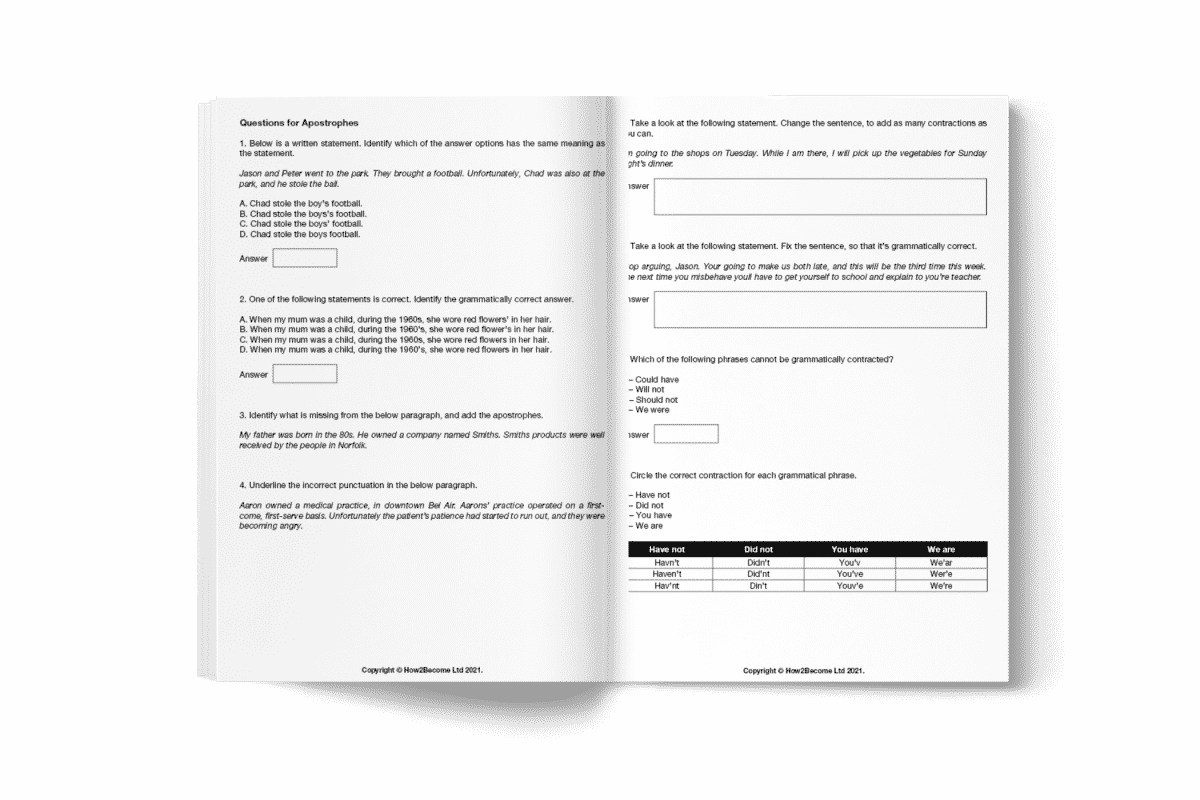
Excellent stuff!